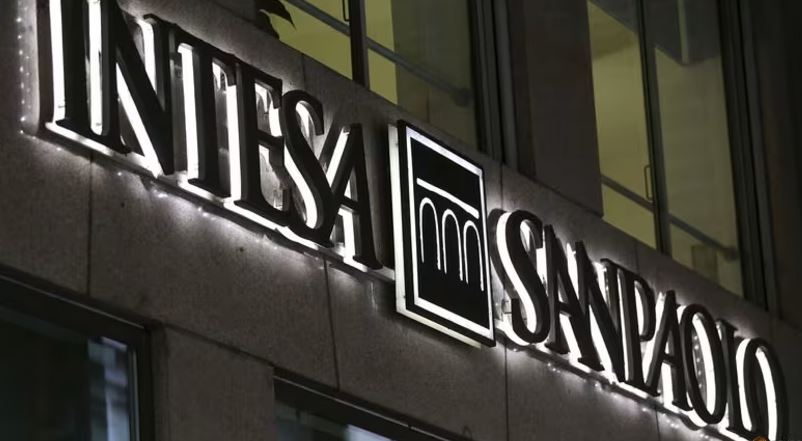This year there has been a major development that has attracted many, Italy’s Privacy Watchdog has sued Intesa Sanpaolo over a severe data loss that compromised thousands of customers’ data. Before risking huge debates for and against having CISOs and serious displacing of cyber budgets, the real question is, how seriously did the bank take the breach and how has it answered the PM, Deputy PM, and Prime Minister Meloni about the breach? This article looks at the following heads of the breach, the steps that the bank has taken, decisions made by Italy’s Privacy Watchdog, and ultimately the future of data protection in Italy and the rest of the world.
The Data Breach: Overview of the Incident
It was first revealed last month when a well-known Italian bank Intesa Sanpaolo faced the problem after an internal member reported to the authorities, claiming that one of the colleagues used the opportunity to obtain clients’ private data of around 3 500 people. This employee also violated the privacy of stakeholders by retrieving personal information such as financial records without lawful permission.
Italy’s Privacy Watchdog was at first concerned with the big data leak incident that had affected thousands of customers. Nevertheless, Intesa Sanpaolo issued a subsequent statement saying that the customer base hit by the breach “is substantially smaller than previously reported in the media outlets.” It was an instance of miscommunication that critics began to question whether the bank had initially reshaped its response to the scale of the hack.
Intesa Sanpaolo reaffirmed in a statement that the employee involved had been promptly dismissed from the company after a preliminary investigation. It also instituted a criminal complaint against the suspected fraudsters at the prosecutor office. Despite this, Italy’s Privacy Watchdog felt that Intesa had not sufficiently addressed the incident’s scope, especially since the breach became widely known through press reports before it was officially confirmed by the bank.
Privacy Watchdog’s Findings: Mismanagement of the Breach
Italy’s Privacy Watchdog frowns at Intesa Sanpaolo for minimizing the likelihood of the breach. To the authority, the breach was deemed a high impact on the rights and freedoms of the persons affected mainly due to the revelation of personal financial information. The authority underscored that, among the potential outcomes of the break, there were the reputational and severe threats to personal safety, as financial data, including the personal information of famous individuals such as Meloni, could be leaked.
The watchdog was also able to establish that the bank had not provided sufficient information on the breach. This failure was well illustrated by the fact that media had leakages informing the public of the incident before Intesa was able to disclose same to the regulator. Among the concerns that Italy’s Privacy Watchdog pointed out when the breach occurred was the inability to report the breach accurately and on time. This lack of knowledge illustrated the impotence of present compliance policies and the ambiguity of institutions’ warning signals in such cases.
Security Measures and Customer Notification
Based on the results, Intesa Sanpaolo confirmed its commitment to the improvement of data protection systems and practices. To the bank, the safeguarding of the customers’ information remained paramount to them, and they have started rectifying the problems in their procedures and measures. In addition, what has been done was Intesa was ordered to inform all the customers whose data was violated within 20 days. This mandate was commenced in efforts by Italy’s Privacy Watchdog which wanted the users who were affected to be informed early enough so that they could protect their information.

Despite the challenges posed by the breach, Intesa has stated that it has not found any evidence to suggest that the compromised data was shared or distributed outside the bank. This claim is significant, as it helps limit the scope of the potential fallout from the breach. Nonetheless, the fact that sensitive financial data was accessed by an internal employee raises important questions about internal controls, employee oversight, and access to customer data within major institutions.
Legal and Ethical Considerations
This shows the need for data protection enhanced, concerning financial institutions. Since they deal with large numbers of customers’ information that is compromised easily as was experienced in this incident. Most European Union countries have enacted the General Data Protection Regulation (GDPR). Which dreadful the protection of client’s personal information. It becomes mandatory for organizations to incorporate efficient measures to protect personal data. Penalties for these violations are extremely stiff. In addition, a soiled reputation will dampen the image of the concerned institution. And the confidence investors, customers, and shareholders have in the institution.
By identifying the case of Intesa Sanpaolo it is easy to understand what may happen. When an institution does not adequately protect data. In this respect, the financial industry, for instance, has to pay much attention to data security to ensure nobody has free access to other people’s financial information. This for instance entails being able to contain the breach early. And to be able to notify all the relevant parties. Third, financial institutions need to create a sound culture. And ethical values by being accountable when dealing with sensitive data especially when infringed.
A Wake-Up Call for Financial Institutions
This has had a very wide impact in Italy specifically on the flows of the financial sector. And other bodies in the protection of data. They proposed to analyze the leakage of data and inadequate security measures as a wake-up call for all financial institutions in Italy and the global world. The violation of the customer’s privacy is not only an infringement of high standards of information security. But also an infringement of the trust that many customers have in their banks.
Italy’s Privacy Watchdog has now urged Intesa Sanpaolo to review their security system. And report back with changes the next month because of this incident. This review will assess the effectiveness of measures embraced by the bank after the attack to reduce further attacks. Regulated firms need to realize that cyber threat is a menace that operates all the time. And they should act in the best interest of the customers to safeguard their data.
Moving Forward: Trust and Transparency
In essence for Intesa Sanpaolo, the work that lies ahead is to try. And regain the confidence that was lost in the process. The bank has sought to take some measures to redress the situation. It will need to enhance its security measures in the future besides sharpening the way it handles customer relations. And deals with regulators. Trust is always an essential component of the banking customer relationship. And customers’ personal data protection is among the critical banking practices for maintaining that trust.

The case of Italy’s Privacy Watchdog and peripheral suspicion over Intesa’s handling of the issue should underscore that data privacy is not simply a legal issue, but an ethical one. Intesa and other banks need to adopt a culture of transparency. And also avoid compromising the customers’ data they input into the firms. Since the use of technology is dynamic, the policies, and procedures. And other controls that facilitate security for the data must also grow.
Conclusion
The investigation of Italy’s Privacy Watchdog over the data breach committed by Intesa Sanpaolo is an eye-opener regarding the maintenance of data security. Because data breaches of financial institutions remain a reality. There is a need for the strengthening of the protection of customer privacy as well as improved reporting of breaches. This case shows how data protection must updated to ensure that people trust a business with their information. And do not suffer damage to their reputation and financial issues in the future due to cyber threats.
FAQs
This involved access to clients’ private information with financial details being among the worst affected.
The auditor said that Intesa had underplayed the extent and consequences of the leakage.
The bank enhanced its security and fired the culprit of the leakage.
